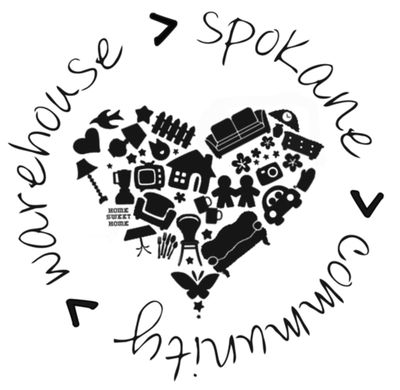New warehouse helps Spokane recycle while providing for families in need
Nonprofits expand declining donation program

Several Spokane area nonprofits have banded together to help needy families discover the comforts of home by collecting and redistributing donated household items.
Starting in 2008, officials at St. Margaret’s Shelter—an emergency and transitional facility for homeless women and their children since 1961—had noticed a need for a central means of receiving and distributing donated household goods to area homeless and low-income families.
Prior to this, the 112-year-old St. Vincent DePaul charity took care of those needs. But when St. Vincent de Paul was forced to close some of its thrift stores, a traditional support stream was also reduced.
In February 2009, St. Margaret’s staff began talking with other area nonprofits which also saw the need for a central location which they could direct their clients. They also looked at a similar program in Portland, Ore., called Community Warehouse, which was established in 2001 and now services 70-plus families weekly.
“It really just made sense from a logistical point of view to create a central hub; also we really wanted it to be a community program rather than just one agency,” says Sheila Morley, program coordinator for St. Margaret’s and now the new Spokane Community Warehouse program. “We were all trying to fill the void left by St. Vincent’s on our own, but there were issues of storage, staffing and transportation,”
Twelve agencies spent last summer ironing out the details and in September 2009, Spokane Community Warehouse officially was in operation. Since then, the program has served about 191 households with approximately $81,000 in donated household items, all collected and distributed thanks to more than 1,800 hours of volunteer service.
Warehouse volunteers can pick up household items from donors’ homes, and transport them to the Warehouse, where they are then redistributed to those who need them at no charge. Gently-used items include beds, dressers, bookshelves, tables and general household items.
The 12 partners involved with St. Margaret’s in overseeing the Warehouse include Catholic Charities of Spokane, The Arc of Spokane, Interfaith Hospitality of Spokane, Martin Luther King Center, Salem Arms, Spokane County Community Services, Volunteers of America, Transitions, CORD, YWCA, SNAP and New Horizons, all of which work to get homeless and low-income people back on their feet. A steering committee of representatives from these organizations meets regularly to brainstorm on what’s working with the Warehouse and what needs to be worked on.
One idea with good potential to help this project fiscally is a ‘Membership’ program. Other homeless coalition agencies who wish to be part of the Warehouse network can pay $250 a year and agree to provide 24 hours of volunteer assistance a year. In return they can refer clients who are moving into a home to the program so the clients can fill their home with necessities such as a bed, couch and kitchen appliances.
Items that aren’t accepted or available include clothing, food, large desks, baby items or baby furniture of any kind, wood bed frames, console televisions, hide-a-beds, exercise equipment, or medical supplies like bath chairs, wheelchairs or electronic beds.
“We found that just putting people in housing was sometimes not enough,” Morley said. “If people do not have the basic necessities—a bed to sleep on, something to sit on and items for cooking, they are not able to retain the housing. If people come from a shelter where their basic needs are met, it is not reasonable to expect them to succeed in housing without those basic needs,” said Morley.
She said another critical need is volunteers.
“We’ve been lucky so far that they seem to just find us. (One day) we had a group of about 45 G.U. students helping us move into our new warehouse…we couldn’t do it without people like them,” Morley said.
Currently the Warehouse is vying for a $25,000 grant from the Pepsi Refresh Project, which searches for ‘refreshing ideas to change the world,’ and distributes grant money based in part on the number of votes a non-profit receives.
If the Warehouse’s cause — ‘A Bed for Every Head’—wins enough votes, it could receive funds which would cover expenses for an entire year. People can either vote online via the Warehouse’s website or by texting PEPSI.
Another chance to support The Warehouse will be through the ‘CHAIRity Event’ October 1-3. Local artists will decorate chairs and donate them for display at a downtown Spokane venue in conjunction with October First Friday Art Walk. Supporters of the Warehouse can then purchase raffle tickets for $1 each; the ticket goes in a drawing for the chair of their choice.
“We’re trying to make our cause as accessible as possible so that people who are interested in being a part of what we’re doing can become involved even if they don’t have items to donate,” says Morley. “The support we’ve received has been so encouraging; it really has surprised us but at the same time just reaffirmed the generous nature of our community.”
To volunteer or donate household items, call (509) 624-9788. To vote for the Warehouse’s PEPSI ‘A Bed for Every Head’ cause or sign up as an artist for the CHAIRity Event, visit www.spokanecommunitywarehouse.com